There was real variation in the fourteen History, Memoir and Biographies reviews received during August 2019, encompassing place, politics and society, relationships and past lives.
Place
Australian novelist, essayist and poet Lily Brett has lived in New York for many years. Her book New York (2001 – as distinct from her 2014 book rather confusingly titled ‘Only in New York’) is a collection of her writing where, as with her other non-fiction and thinly-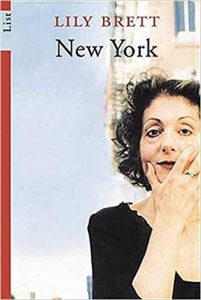 disguised fiction, she writes about herself. In his review Bill Holloway writes:
disguised fiction, she writes about herself. In his review Bill Holloway writes:
New York is a slim volume of pieces, some trite, some whimsical, some sad, all the same length, around two and a half pages, maybe a thousand words, that feel like newspaper columns, casual, personal and beautifully crafted…The pieces, only tied together in that they are observations arising from Brett’s having lived in downtown New York for many years, all have the same rhythm so that if you read them one after another it begins to feel like the rise and fall of breathing (see review here).
A rather more unfamiliar setting is Kenya, where Kirsten Drysdale (from The Hungry Beast and The Checkout on ABC) travelled in 2010 to act as a carer for an old man with dementia for a year. Janine Rizzetti, who has spent some time in Nairobi, very much  enjoyed I Built No Schools in Kenya: A Year of Unmitigated Madness (2019) :
enjoyed I Built No Schools in Kenya: A Year of Unmitigated Madness (2019) :
This is not high literature, and it is not meant to be. I found myself laughing out loud in places, and the whole thing rang completely true to me – even the dynamics of a family struggling with dementia, which is its own form of madness. She has an acute eye for the absurd, but also is a keen and thoughtful observer of what is going on around her (read review here).
Politics and society
Cass Moriarty reviewed Griffith Review 65 Crimes and Punishments. Griffith Review is one of Australia’s leading publications for new writing in a range of genres: prose, fiction, 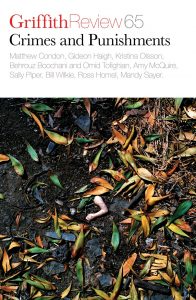 essays, memoir, poetry and images. In her review, Cass writes:
essays, memoir, poetry and images. In her review, Cass writes:
This latest quarterly edition: 65 Crimes and Punishments (Text Publishing 2019), edited by Ashley Hay, explores our endless fascination with crime stories, both true crime and fiction, and navigates the ideas of retribution, punishment, incarceration, justice, victims, perpetrators, witnesses and advocates….Once again, Griffith Review demonstrates why it is at the forefront of Australian literary experimentation, investigation and creativity (see her review here)
Jennifer Cameron Smith also read this Griffith Review, which particularly attracted her because she reads a lot of crime fiction and true crime, even though
As I read, I wondered about why I (and others) are so fascinated by crime stories. There is a (comparatively) safe retreat in fiction which is not echoed by the way in which crimes happen in the real world. Humans are complex organisms (review here)
Jenny Hocking’s battle to get access to the ‘Palace Letters’ written at the time of the Whitlam dismissal is still playing out in the courts. Her small book The Dismissal Dossier: Everything You Were Never Meant to Know about November 1975 (2016) goes through the events and people involved in the Dismissal in the light of later revelations and research. 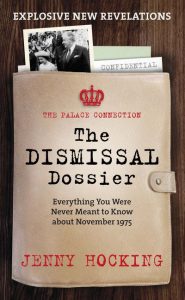 Janine Rizzetti, whose political leanings show through in her review, writes:
Janine Rizzetti, whose political leanings show through in her review, writes:
These things have been revealed over the last forty years, but because they have been drip-fed, you tend not to see the whole picture. ..That’s why this book is so important. It’s only short, but it draws the threads together. It re-kindles the rage…Reading this book reminds me why we should maintain the pressure for a republic, and why Hocking’s own persistence and assiduity has been so important (review here).
Relationships
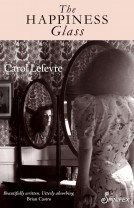 Carole Lefevre’s The Happiness Glass (2018) is a mixture of fiction and memoir, drawing on the author’s recollections of life in rural NSW interwoven with the story of her fictional alter-ego Lily Brennan. Cass Moriarty describes it as:
Carole Lefevre’s The Happiness Glass (2018) is a mixture of fiction and memoir, drawing on the author’s recollections of life in rural NSW interwoven with the story of her fictional alter-ego Lily Brennan. Cass Moriarty describes it as:
.. a slim compendium volume of fiction, non-fiction essays and memoir exploring the ideas of homesickness, infertility, adoption, parenting and familial estrangement….This is a thought-provoking and esoteric book that offers a stream-of-consciousness journey familiar to many women (read her review here)
Journalist Stephanie Wood’s Fake (2019) draws on the author’s own experiences, and those of other women duped by liars, cheats, narcissists and fabulists. Kim Forrester 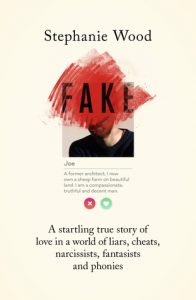 writes:
writes:
Fake is not just an account of Wood’s unwitting involvement in a sham relationship, it’s a riveting exposé of con men across the world who use their narcissistic powers to take advantage of others for their own end….In this brave and honest book, Wood takes a painful episode from her personal life and turns it into something more important: a compelling and well-written study of a behavioural “type” designed to help others recognise when they’re being played (review here).
Past Lives
Australian author P.L.Travers is best known as the author of Mary Poppins. Valerie Lawson’s biography – the only one written so far- examines the life of Pamela Lyndon Travers whose 1934 book spawned both the Disney movie and the Cameron Mackintosh live show. In her review of Mary Poppins She Wrote: the extraordinary life of Australian author P. L. Travers (2010), Ashleigh Meikle at the Book Muse writes:
This biography posits Pamela as very independent, someone who saw two world wars and the Great Depression, Federation, suffrage in Australia, and many other key events. It gives great insight into what led to her writing Mary Poppins, even though Pamela claimed that Mary had just appeared one day – and she did not like to call herself a children’s writer, even though her books have always been enjoyed by and aimed at children…Biographies of authors are interesting because we get to see where they came from, and what led them to writing the work or works they are most well-known for. For PL Travers, this is the only biography that we have exploring the life of this author, that goes beyond what everyone knows her for – she led a complex life and one that many people would not have realised she led, or what she had to deal with at a young age – a very insightful and interesting book (review here).
In Sue Ingleton’s Making Trouble:Tongued with Fire (2019), we read of the lives of two champion swimmers who emigrated to Australia from England in 1875. Ingleton’s “imagined history” deals with the lives and illicit relationship of Harriet Elphinston Dick (aged 22) and Alice Moon (aged 18) who opened women’s gymnasiums in Australia and took their exercise programs to girls’ schools. In her review, Veronica@The Burgeoning Bookshelf writes:
Sue Ingleton has undertaken extensive research to compile this story however there are many aspects of these women’s lives that must be assumed or created as there is very little written communication available. Ingleton uses travel records, newspaper clippings and death certificates to validate her story…I was fascinated by this story of two little known women who made such great inroads into women’s health and fitness and also women’s rights in Australia…The author narrates the story more like a fictional tale than a biography bringing the reader right into the home, and daily life, of these women (review here).
Word of mouth…
Once again, it’s good to see the word spreading about other good reads in the History, Memoir and Biography category. Calzean reviewed Jessie Coles’ Staying, and Ann Skea wrote a review of Tanya Heaslip’s Alice to Prague. Jessica White’s Hearing Maud was reviewed by Kali Napier, while the Stella Prize winning The Erratics garnered another two reviews, one by Calzean and the other by Carolyn Scott.
About: I’m Janine Rizzetti and I blog at the immodestly-named The Resident Judge of Port Phillip where I indulge my love of reading, podcasts, history and seeing films and exhibitions just before they close. I am a historian, interested in Australian and colonial history, officially retired but more occupied than I thought I would be with my local historical society, playing with grandchildren and learning Spanish.






Great wrap up.
I was in Japan when this posted, Janine, so saw it come through but decided to wait until I returned to read it properly. Another good round-up covering some fascinating reads. There are a few here that interest me, including Hocking’s! And Brett’s. And I always love The Griffith Review and wish I had time to read them more assiduously.
I have a whole pile of Griffith Reviews that I haven’t got round to reading (and The Monthly, and the Saturday Paper) My son keeps wanting to open them but I want the pleasure of at least OPENING them even if I don’t read them!
Haha, I feel possessive like that too about my magazines – I feel guilty but can’t help myself.